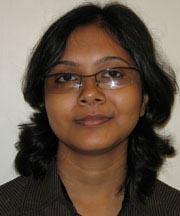Informal Insurance under Group Lending with Individual Liability: Evidence from India
There has been a recent shift from joint liability to group loans with individual liability by the Grameen Bank and some other prominent micro lending institutions across the world. Under the joint liability lending mechanism a group of individuals were given a loan and individuals in a group were jointly liable for the loan given. Under the new lending mechanism although borrowers have to be in a group in order to have access to the loan, individuals are not liable for the default of other members in the group. An individual is only liable for her share of the loan. Some recent field experiments (Gine, Krlan, 2011) observed no change in repayment rates with this regime change.
These individual liability lending schemes are fairly recent. Therefore there are very few studies on what leads to smooth functioning of the individual liability lending mechanism in a group lending set-up.
In a theoretical paper, Basu and Dutta (2013) explain why the shift from group liability to individual liability loans does not lead to a change in repayment rates. Though liability is individualized, the authors argue that borrowers can informally insure each other in ""groups"" leading to repayment rates similar to those under joint liability.
Informal insurance may evolve in situations where formal insurance contracts cannot be written. It is based on reciprocity. In the context of group lending we may observe informal and mutual insurance when default by one member due to a bad income shock is paid by other group members with the anticipation that the currently defaulting member will help other defaulting members of the group when the former has a good income shock. This study intends to examine whether informal insurance based on reciprocity really plays an important role in the context of group lending under individual liability. In particular, it will evaluate the impact of informal insurance on repayment rates.
We will conduct the survey with borrowers in India through Bandhan Financial Services Pvt. Ltd. (BFSPL). Bandhan delivers loans through the model of Individual liability through group formation and is one of the largest MFI in India. It has almost 5 million borrowers and about GBP 500 million of loans disbursed. This survey will be conducted on randomly selected groups of BFSPL clients in West Bengal.
BFSPL on an average has 10 members in each group. We plan to interview 100 such groups. The survey will consist of two parts. The primary part will interview each member in these groups. The interview will consist of member specific questions as well as some group specific questions.The group specific questions will focus on the informal insurance aspect and will include questions on the amount and frequency of help an individual received from the members in her group to pay back her loan in the last one year. A structured questionnaire will help us identify the existence of informal insurance under individual liability lending. The other part of the survey would consist of interviewing the group leaders to gather information on overall group characteristics.
Thus our empirical findings will serve to guide the policy makers and other stakeholders involved in such programs on appropriate interventions for smooth functioning of MFIs in India. The study may also be used by MFIs who are willing to consider alternative methods of lending.





